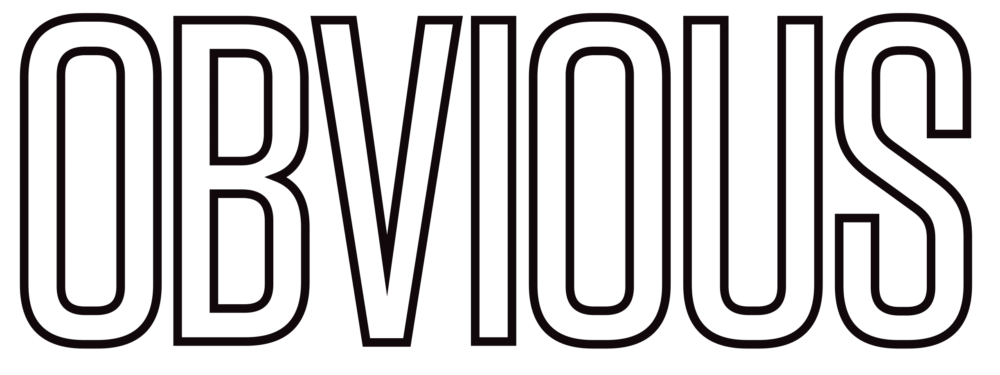With film and entertainment being one of the most influential vessels of mass communication, it takes people like Kenya T. Parham to help funnel the social narratives of film stories to people and executives to help push that story forward.
To you and I, this would be more commonly known as “marketing,” but to dissect the moving parts of that type of work leaves room for questions about strategy.
Marketing strategy for anything, especially film, is not a linear thing – it has sectors that need to be spoken to individually. That strategy needs to be even more magnified when films are telling stories that center people of color. The narrative usually fails if its messaging isn’t backed or created by voices that reflect the storytelling.
Kenya T. Parham saw this as an opportunity to pave her path in the film industry and navigate its complex marketing world by coining her own title as a Cultural Strategist. This title has proven itself as a formula for creating the right messaging for its audiences. And that’s just scratching the surface of what she can do.
See what she had to say about film, strategy, and being a voice for the community below.
Finding Film’s Narrative Through the Lens of Culture
How do you define the role of a “Cultural Strategist” in filmmaking?
Kenya T. Parham: Before I can give a specific definition of what cultural strategy is, I have to talk about how I got to this point. Both of my parents worked with the California higher education system for many years, and in a way, creating a path for me to be the next Doctor in the family. That’s what I was “supposed” to do.
I was supposed to follow in their footsteps, but I endeavored to be a political strategist first. I was fascinated with people who made campaigns work, run, take off, and take flight to support political candidates, particularly the candidates of color.
Growing up as a young Black kid in Southern California, I learned quickly that everything is truly political, so flash forward, I would show up to work and say, “Hey, here I am, a political strategist,” but I had begun to realize that political strategy bleeds into so many categories that already have different names like publicity, marketing, fixing, fundraising, donor engagement, and all of the various kinds of nuanced messaging.
I had gotten used to using “Political Strategy” as a blanket term to describe the career category I chose to work in. When I made a career shift in 2017 to film, I recognized that the time I had invested as a political strategist gave me a transferable skill set.
A core of those transferable elements came from me being a person who has a heart for the community. I’ve always worked for and on behalf of Black, Brown, and Indigenous communities.
Culture was always what I had been quantifying the capital of and talking about my whole career value. I just named it politics. Coming out of an electorate election cycle where the term “politics” became such a nasty term, it was very easy to think of something electoral and then not want to be involved anymore.
I pulled a messaging cue and decided to call my work cultural strategy instead. I show up in the film industry’s marketing circles and the messaging side of things in post publicity.
The cultural strategist’s role fits well because I always show up unapologetically and ready to connect and fill the table with cultural stakeholders who deserve and need to see these films/projects first.
I make sure that we maintain and control the continuity of these projects through their lifespan, not to commodify the culture for the dollar.
How do you think films across the board of the industry would benefit from having a cultural strategist?
Kenya T. Parham: We are in a day and age where everything is so intersectional and beautifully so because we are such dynamic people as human beings.
When you get into the Black and Brown of it all, that dynamism takes on a whole different look and feel. I think cultural strategy, particularly when we’re talking about the influx of capitalism and the commodification of culture and how culture really does move everything forward, I think it’s vital to have folks at the table like me with that kind of mindset.
There are many people like that in the industry, making sure that projects are culturally competent. When we’re trying to be as inclusive and welcoming as possible in today’s social climate, those things can be done differently or hit differently if they’re not emblematic of having enough voices in the room. And those voices need to be well-informed and educated enough to contribute to that goal.
For the film Judas and the Black Messiah, how did that strategy come into play for you?
Kenya T. Parham: I’m one person on a team of strategy. By no means do I want to represent like it was just me. This project was so Black and so proud – it was amazing to be in company with the giants in the room. This was a multi-studio collaboration between Warner Brothers, MACRO, Proximity, Bron, and I was brought in on the multicultural marketing side of things on Warner Brothers’ behalf.
I was tasked with not explicitly asking to do cultural strategy but instead figuring out how to share the message and importance of who Fred Hampton was and is and who needs to see this film. I needed to make sure that we shared that message and that its reach was as broad as possible. I stepped in to help curate tastemaker lists with screenings and position the film as best as possible for award season.
I’m pleased knowing that the film was received with the intention that it was created for. The production team has been a fan of it for some time now, so it was great to see the world receive it in a way that we loved so much.
Are there any upcoming projects that you can talk about that you’re excited to work on?
Kenya T. Parham: So, this is an OBVIOUS exclusive, but I just signed a development deal with MACRO Studios for my own podcast called “Everything Is Political.”
This project fits right in line with the story of how I created my career and have been running in this flame. I’m very excited to be partnering with MACRO Studios, which was very supportive in creating content that intentionally disrupts, shifts, and changes the narrative.
The point is to shift the discussion from politics as vitriolic and nasty into culture’s politics. We’re having a cultural conversation, and I’m super excited that MACRO thought enough of me to partner and develop this together.
I am a huge fan of MACRO’s content and have had the privilege of working on a couple of their films, so it just feels like I’ve been welcomed home. I’m grateful for the opportunity, and we’re going to be making that announcement pretty soon, but I’m glad to be sharing this with OBVIOUS and your readers.
What advice would you give to young people who have marketing or strategy backgrounds and who see you as an example and might want to follow a similar career? How do they get into the lane of cultural strategy?
Kenya T. Parham: My message is for the young people who both come from marketing backgrounds and those who, like myself, didn’t. I did not go to school for what I do. I had no idea what I do for a living was even a career possibility.
I was the one who sat by the door and took copious notes, who observed, and wasn’t afraid to stick my foot in the door when it tried to close on me. I used Shirley Chisholm as inspiration to “bring my folding chair” and invite myself to spaces that I felt I could contribute to.
If you find that you are passionate about something, if your heart lights ablaze when you create or involve yourself in messaging, writing, whatever it is, know that you can create something of value that society will appreciate.
The marketplace will see value in that. It doesn’t even have to be a “real job” as long as you are authentic and the work you do stems from that. I encourage people to think outside the box, especially as this is an incredible time to build a career for yourself.
The marketplace, particularly in entertainment, seems to be shifting to be open and interested in hearing from a diverse body of voices, thoughts, and opinions.
There’s no better time than the present to make it known that you have something to say. I look forward to looking to my left and my right and seeing many folks doing cultural strategy in the future.
heykenya.com
Instagram @kenyatparham
Want the latest posts, offers, and exclusive content straight to your inbox? Subscribe to our newsletter and never miss out again. See more Culture here.



